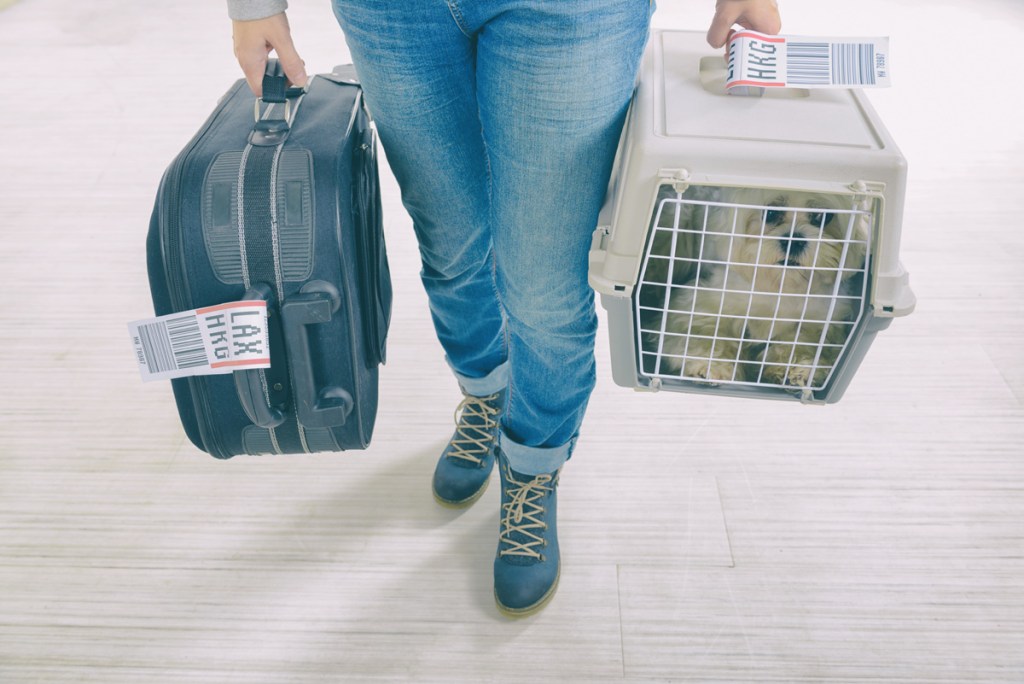So you’re planning an extended international trip and your dog is your traveling companion — lucky you! You are both sure to have a fun adventure as long as you do your research and start preparing well in advance. Do dogs need passports? Yes, they do!
Keep in mind that a U.S. pet passport is more involved than the booklet issued for human travelers. The paperwork included in a pet’s passport depends on the specific requirements of the country you’re visiting, but it at least includes medical records certifying that your pet is safe and healthy for travel.

As you gather your pet’s paperwork together, remember that you’ll need to satisfy requirements for the airline or shipping company in addition to the country you’re visiting. Some airlines and shipping companies have strict regulations regarding the timing of vaccinations before traveling, so make sure you understand those requirements before traveling. You can find country travel regulations on the United States Department of Agriculture (USDA) website. Always confirm the requirements for traveling with pets with the consulate or embassy of your destination country when preparing your pet’s passport.
According to the USDA, the destination country sets the requirements for pet travel. Most countries require pets to arrive with a health certificate, which may also be referred to as an international health certificate. This certificate is issued by a veterinarian who examines your pet and performs all the required testing, vaccinations, or treatments for travel. Some countries require that health certificates are endorsed by the USDA, in which case you will need to have a USDA-accredited veterinarian complete the paperwork for your pet’s passport.
What happens if you don’t have a pet passport?
Your pet must meet the import requirements before travel, according to the USDA. If you do travel with your pet and don’t have the required paperwork, your dog may be denied access at the port of entry and may be placed in quarantine or returned home at your expense. It’s a pet parent’s responsibility, not the veterinarian’s or travel agent’s, to make sure that pets meet all health requirements, say American Kennel Club experts. If a veterinarian finds your dog unfit for travel, you won’t be able to complete the necessary paperwork for a pet passport. In that case, you will need to leave your pet at home with a trusted caregiver.
Do dogs need passports to go to Canada?
According to the experts at Pet Travel, when going from the U.S. to Canada, dogs 8 months of age and older need to have a valid rabies vaccination issued by a licensed U.S. veterinarian. Canada does recognize three-year rabies vaccinations. Dogs entering Canada from all other countries are also required to show proof of a current rabies vaccination and are subject to examination at the port of entry.
Pet parents need to be mindful of breed restrictions when traveling to Canada. The American Staffordshire terrier, pit bull terrier, American pit bull terrier, the Staffordshire bull terrier, and their crossbreeds are banned from entering the Province of Ontario and the city of Toronto. There’s also a ban on the American Staffordshire terrier, Staffordshire terrier, and the American pit bull terrier in Winnipeg.
How quickly can I get a pet passport?
Since a pet passport involves research, scheduling veterinary appointments, and collecting required documentation, it can take several months to complete the process. Experts at the USDA suggest starting the process at least six months before your trip. You’ll need to schedule vet visits in advance and allow time to process all the necessary travel paperwork. For example, it can take one to three business days to process USDA endorsements of health certificates. Many countries require health certificates to be issued within 10 days of travel, so you may not be able to complete your pet’s passport until closer to your trip.
How much does a dog passport cost?
The cost of putting a pet passport together will vary greatly depending on the health documents required and veterinary fees. That paperwork could include the following:
- pet health certificate
- proof of rabies vaccination
- pet microchip documentation
- rabies titer test results to prove the effectiveness of the vaccine
- parasite treatment, including tapeworm and screwworm
- proof of core vaccinations, including coronavirus, Lyme disease, leptospirosis
- import permit license
The cheapest part of putting the passport together is purchasing a pet passport book to keep all of your dog’s records safely in one place.

In conclusion
There’s no getting around it: international travel can be stressful. And when you take your pet along for the ride, things can get more complicated. But doing your research and understanding the requirements will help ensure a positive experience for you and your animal companion.



